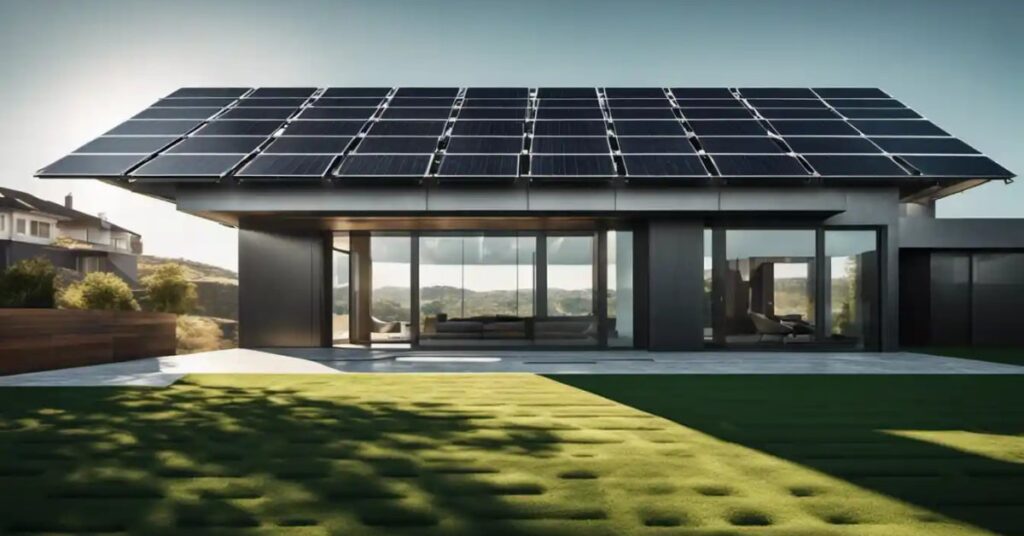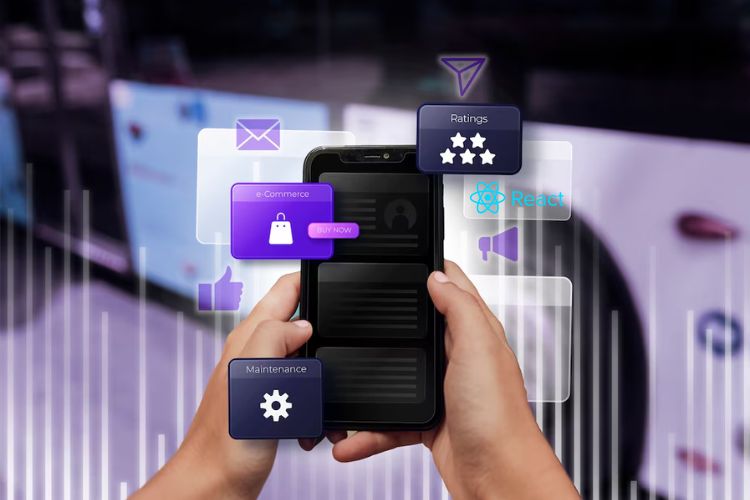
Solar panels offer massive benefits. From reducing carbon footprint to long-term saving opportunities, innumerable advantages tag with solar panel installation. This is why investment in PV systems worldwide has drastically increased by 20% in recent years. However, one aspect that repels many people from getting the panels installed is the associated cost.
The average cost of solar panel installation for a system between 6 kW to 12 kW ranges from $6600 to $22800, depending on many factors. This is the key reason why many solar seekers who cannot afford the cost take care of the panel installation themselves. If you are planning to opt for DIY (do it yourself) solar panels on your property to enjoy cost savings, you should give this post a quick read.
Taking the hassle of solar panel installation unlocks considerable financial savings. You can save 45% to 65% on the entire solar installation cost. For instance, if you install a 7.5 kW PV system yourself, you can save up to $8000 to $12500 on average.
We understand that you are good enough to install the solar panels yourself. However, you need to understand the pros and cons associated with DIY solar panels.
For starters, installing solar panels on your own can get complicated as you progress in the project if are not a professional. Plus, your safety can get compromised and you might end up spending more money on the whole process.
That is why, you need to understand the related pros and cons before kickstarting the DIY solar panels project. Once you are thorough with them, you can weigh the pros and cons and decide whether you are doing the right thing or not.
Sound good? Let’s dive in!
Pros and Cons of Installing Solar Panels on Your Own
Choosing a DIY path for a solar panel installation project offers numerous benefits. You also get to understand how to clean solar panels and maintain them without any professional help. However, DIY comes with a few downsides that have to be considered before starting your exciting solar project.
Once you are thorough with all the advantages and disadvantages of installing solar panels yourself, you can decide the right thing. Let’s start with understanding the major advantages of installing solar panels on your own.
Advantages of DIY Solar Panels
From increased savings and getting more control to gaining a skill, there are several pros to installing solar panels yourself. Let’s understand them in detail.
High Savings
If you take the DIY solar project, you can save a lot of money on the following related costs.
- Labor costs: The biggest advantage of a DIY solar project is completely eliminating the cost of labor. Hiring a professional solar panel installer comes with a significant cost. Also, the shortage of qualified technicians and solar professionals is also contributing to the high cost of installation. Additionally, the cost of solar installation increases with the size of the PV system. So, if you are planning to install huge-sized solar panels, expect to pay more than 50% of the total panel price. Always remember the bigger the PV system, the higher the labor cost.
- Overhead costs: The cost of hiring professional solar installers tend to get high as their price includes overhead costs such as workmen’s compensation insurance, administrative outlays, profit margins, etc. DIY solar project eliminates overhead costs, lower your expenditure, and increase your savings.
- Tax incentives: Although tax incentives, solar rebates, and other incentives come with professionally installed solar systems, you are eligible for various incentives and rebates if you install solar panels yourself. Using these federal tax credits offered by the government, you can slash 30% off the total cost of solar panel installation, decrease upfront investment costs, and increase your savings.
- Short payback time: This is another major advantage of installing solar panels yourself. When you carry DIY solar panels on your property, you get faster ROI (return on investment). How? You start the solar project with a lower initial cost (eliminating labor cost), so the time needed to recoup the installation cost is less. Hence, it results in a shorter payback period.
More Control and Flexibility
- Design customization: When you install solar panels yourself, the whole process enables you to customize the PV system design freely. You get the freedom to choose the angle, placement, and orientation of solar panels on your roof to access more sunlight and increase the energy efficiency of the system. On the flip side, when you work with a solar provider, you get limited customization options as they follow a standard process and work on pre-determined configurations.
- Selection of equipment: Carrying solar projects on your own allows you to choose the equipment that matches your requirements and ensures optimal performance. Working with professional solar installers might or may not give you the freedom to choose your equipment.
- Control over timeline: When you decide to install solar panels on your property, you can complete the project within a reasonable timeline that you might have decided in your head. You can easily schedule the installation based on your convenience. Once you have the required equipment, you can start the process immediately and progress according to your pace. On the other hand, professional installers work based on their aligned projects and workers’ availability which can take a couple of days to a month.
Gaining Expertise
- Skill acquiring: Solar panel installation cannot be done by any person. When you decide to carry out a DIY solar panel project, the entire process helps you acquire a unique skill. The entire installation process increases your technical know-how about the PV system, and solar technology, and offers invaluable learning experience. This also helps you to understand more about your energy usage, measures to conserve it and increase the solar system efficiency.
- Sense of achievement: As already mentioned, solar panel installation is not that easy which can be accomplished by anyone. Once you successfully complete the installation of the solar panels on your property, it gives you a sense of achievement. The result that you get after hard work and incessant days that you put into the process gives you a rewarding experience. You can take pride and share this experience with your family and friends for years to come.
Disadvantages of DIY Solar Panels
Although several advantages come with DIY solar panel projects, there are some associated downsides that you should consider before starting the process.
Needs Expertise
A solar panel installation is done in various steps, each process requires different construction skills to do it correctly. Also, you need to possess know-how of different electrical systems, safety measures, reading plans, etc. Without the right skills, you will encounter challenges in the PV system installation process. Here, you will require professional assistance. If you want to avoid this to save cost, you can also ask a known person who can help you with different steps involved in the project.
Risk of Safety
Installing a PV system comes with a substantial amount of risks such as trip hazards, ladder, and anchor climbing, proper positioning, etc. Plus, the installation of solar panels involves a lot of electricity work which again brings potential hazards to the installer. Here, you need to be very cautious while getting the installation done on your property if you don’t want to call professionals for the project.
Chances of Roof Damage
As panels are attached to the roof of a property, the effective sealing of holes and correct drilling are key to making your project successful. If you happen to drill the roof or seal the holes inaccurately, it will make your roof leaky which can cause damage your house in the long run. DIY solar panels if not done right can highly damage the roof, so you need to be very careful while mounting the system.
Compromised Solar Panels Quality
If you purchase solar panels from a local store or Amazon, their quality is often degraded unless you go for a big brand. When you work with a professional installer, they ensure that the quality of solar panels is top-notch. If you want your system to last longer, consider purchasing high-quality solar panels.
Permitting Process is Time-consuming
Even after completing the solar panel installation without getting permits, you won’t be able to utilize green energy as you require a permit for it. You need to get approval to install the panels and use them after the completion of the project which can be a time-consuming process. If you work with professional installers, all these aspects are taken care of.
Things To Consider Before Undertaking a DIY Solar Panels Installation Project
You need to consider various aspects before undertaking a DIY solar panels project. Here are some essential steps that need to be taken before beginning the exciting solar project.
Safety Is First
You need to keep your safety to the maximum whenever you install solar panels on your property. Ask yourself the following questions:
- Are you comfortable working on a roof for extended hours?
- Will you be able to climb the ladder without getting scared of heights?
- Are you good at handling electricity?
Analyze these questions and make a decision accordingly.
Get Needed Assistance
Solar panel installation can be challenging to accomplish alone. If you know someone who can assist you in the process, take their help. Also, check if no person can help you with the installation physically; ask yourself if can you do it alone.
Understanding the DIY Process
Before starting the DIY solar panel installation, you need to thoroughly understand the DIY process and all the steps involved. Get equipped with all the necessary knowledge, tools, equipment supplies, etc. that will help you carry out the installation successfully.
Analyse Timeline and Needed Commitment
You need to weigh the amount of savings you will make with the efforts and time you will invest in the installation process. If you are ready to make the needed commitment and invest time in the project, only then move forward.
Evaluate Technical Skills
You need to carefully understand your technical skills. Ask yourself:
- Are you capable of managing the technical aspects of the DIY solar panel project?
- Can you thoroughly read and understand technical manuals?
- Are you comfortable with handling tools?
- Do you have a good understanding of electrical systems?
Understand Associated Regulations
As already discussed, installation and utilization of solar panels require prior approval from local regulatory authorities. Without getting permits, you will not be able to carry out the project. If you do, you will land in some serious trouble.
To avoid such a situation, understand what permits you need to obtain from local authorities to install and use solar panels. You can contact or visit them personally to thoroughly understand the requisites.
Concluding Thoughts On DIY Solar Panels: Is it the Right Thing to Do?
By now, you have understood the major pros and cons of DIY solar panels.
The ultimate decision to do DIY solar panels depends on your preference, level of expertise, and situation. To carry out a solar project successfully, you need to be very honest with your skills, preparedness, knowledge, and resources. If you think you are confident about accomplishing a solar project yourself, DIY solar panels can help you save a lot of money.
DIY solar panel projects are best for:
- People who want to do things on their own and save labor costs.
- Those who want to acquire new skills.
- Electrical and general contractors.
- People with building and contracting experience.
- Individuals who are good with tools and create and follow instructions and diagrams.
Whether you do the DIY solar panels alone or with support, make sure you draw the plan, source the needed materials, and equipment, and install the system accurately. Do not forget to acquire permits and approvals from the utility as this is the foremost step to be taken before beginning with the installation.
At some point or the other, you will require some assistance, so decide whether you want to call professionals for hybrid support or a knowledgeable person you know to avoid the cost.
Good Luck!



















































